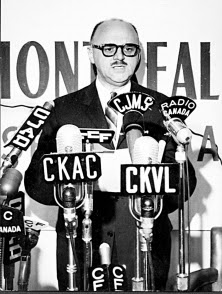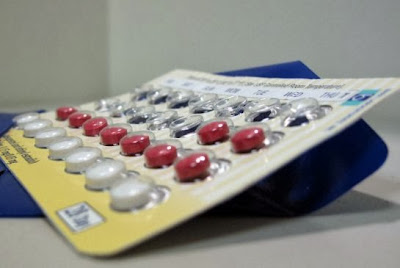From the big scrapbook of time, here’s a look at Canada in
1968-
From St. John’s to Victoria there will be 364,310 babies born in 1968. Lucky ones get to ride home from hospital in one of the 9,357 Vauxhalls imported from Britain by GM Canada. You can see this drawing in colour at HYPERLINK "http://www.indrart.ca" www.indrart.ca.
From St. John’s to Victoria there will be 364,310 babies born in 1968. Lucky ones get to ride home from hospital in one of the 9,357 Vauxhalls imported from Britain by GM Canada. You can see this drawing in colour at HYPERLINK "http://www.indrart.ca" www.indrart.ca.
January 19: Will that be cash or
Chargex? Shoppers in Lethbridge, Alberta and the rest of the country will have
to think about the answer to this question for many years to come. The Toronto-Dominion Bank, The Royal Bank of
Canada, the Canadian Imperial Bank of Commerce and the National Bank of Canada
have banded together to introduce a new credit card. Chargex instantly
stimulates the economy with $300 million worth of new credit.
February 7: With visibility at
zero, Flight 332 belonging to Canadian Pacific Airways overshoots the runway
and crashes into a building at Vancouver airport. Only one of the 62 passengers
and crew on board the Boeing 707 is killed.
February 16: The Tenth Winter
Olympiad closes in Grenoble, France. Canadian athletes bring home one gold, one
silver and one bronze medal. It’s Gold
and Silver for Nancy Green, who places first in the giant slalom and earned a
Silver medal for another skiing event.
March 7: Advancing technology
during the Cold War brings about the necessity of updating the old NORAD
system. Ottawa and Washington will collaborate on a new protection plan in
which aircraft will constantly fly throughout the Arctic with sensitive
monitoring equipment to make sure the USSR stays out of our back yard. The new
plan is called Airborne Warning and Aircraft Control System or AWACS for short.
March 7: The Bell Telephone
Company of Canada Limited gets a new name. Bell Canada is a whole lot faster to
say but folks will still call the telephone provider “Ma Bell” or “The Bell.”
March 16: The chartered banks and
gold dealers have no gold to sell as the federal government suspends trading in
the precious commodity.
March
23: The last Mercury truck rolls off the line at Ford's Oakville, Ontario
plant. The brand is phased out after 22 years--another casualty of AutoPact.
April 1: The old Board of
Broadcast Governors makes way for the new Canadian Radio-Television
Telecommunications Act. The first chairman of the CRTC is the most trusted
civil servant in the country, Pierre Juneau. He will create Canadian content requirements for radio and television. The Juno Awards will be named for him.
April 2: Montreal Mayor Jean
Drapeau institutes Canada’s first lottery. His Worship hopes the profit from
the gambling scheme will pay off the $250 million bill left from Expo ’67—the
World’s Fair.
April 12: The New Brunswick
legislature passes into law a bill that makes the Picture Province the first to
offer all government services to citizens in both official languages.
April 12: Hamilton, Ontario
lawyer Lincoln Alexander will sit in the House of Commons as a Progressive
Conservative, representing the riding of Hamilton West. He is the first
African-Canadian to be elected to Parliament. He will also become Lieutenant Governor of Ontario.
 |
| On top of the world, no matter which direction they look, it will be south. |
April 1: Ralph Plaistead and
Jean-Luc Bombardier have led a joint Canada-US expedition to the North Pole. The
42-day trip is made by four snowmobiles. Jean-Luc, nephew of snowmobile
inventor Joseph Armand Bombardier, is the first Canadian to reach the North
Pole.
April 20: Pierre Elliot Trudeau
is sworn in as the nation's 15th Prime Minister after Lester Pearson steps down. The press
speculates that the new PM will call an election shortly.
 |
| Ford's compact Falcon is built in the St. Thomas, Ontario plant. |
April 22: The 11,000 employees at
Ford of Canada end a six-day strike.
 |
| Red Berenson suits up for the Blues. |
May 11: The Habs beat the St.
Louis Blues four games to zip for the honour of taking home the Stanley Cup. This is the first year for the bigger NHL which now has twelve teams.
May 11: The Toronto Transit
Commission opens its new east-west subway extensions to the public. The system
is now 9.6 kilometres longer than before.
May 15: The Centennial
Planetarium, with the 280-seat Star Theatre opens in Winnipeg.
 |
| The US government has maintained a consulate in Quebec City since 1834. |
May 24: The United States
Consulate in Quebec City is damaged by a bomb blast. The FLQ claims the act as
part of its struggle to make Quebec an independent nation.
 |
| Soaring 105 metres (344 feet) into the air, the new home for Radio-Canada and the CBC towers over Montreal. |
May 24: The sod is turned for
Maison Radio-Canada in Montreal. The 23-storey landmark will open in 1972. La
Maison will be home to Radio-Canada, CBC and Radio Canada International.
May 27: Walter O’Malley—chairman
of the National League’s expansion committee announces that a group of
investors has put up $10 million to bring major league baseball to Montreal.
There is no word as to what the team will be called but Royals, Nationals and
Expos are names being put forward.
 |
| Shirley M. Jeffery is ordained as a minister of word and sacrament in the Presbyterial church. |
June 1: Queen Elizabeth II
officially proclaims the flag of Alberta.
June 1: The nation’s first heart
transplant patient is dead. Dr. Pierre Grondin at the Montreal Heart Institute
tells reporters that Albert Murphy died as a result of complications from the
anti-coagulants used to stabilize the 58-year old patient.
June 3: The Royal Canadian Mint
announces it will replace the silver in coins with a much less expensive nickel alloy beginning
next month.
June 9: Folks from St. John’s to
Victoria warm up their Northern Electric, Marconi and Electrohome TV sets to watch federal leaders Pierre Trudeau,
Robert Stanfleld, Tommy Douglas and Real Caouette in the first-ever televised
leaders’ debate.
June 24: Golf pro Sandra Post of
Oakville, Ontario wins the US Ladies' PGA Championship. She is the first rookie
and the first foreign player to win the prestigious title. Sandra will be inducted into the
Canadian Golf Hall of Fame in 1988 and receive the Order of Canada, C.M. in
February 2004.
June 24: Prime Minister Trudeau
attends the St. Jean Baptiste Day parade in Montreal. The celebration turns ugly when separatists pelt him
with rocks and bottles. The PM stands his ground as the TV cameras record the
incident. His refusal to run for cover is seen as a sign of strength and
courage.
 |
| Red: Liberals, Blue: Conservatives; Orange: New Democrats, Green: Social Credit |
June 25: The campaign is over and
the votes are counted. The Grits have swept the federal election, taking 154
seats in the House of Commons. The Tories have 72 seats in the new House, the New Democrats 22 seats
and Social Credit has 15. It is the country’s first majority government in a
decade. Analysts say the key to the smashing victory is the charm of the
charismatic new Prime Minister and call the phenomenon “Trudeaumania.”
June 30: The Husky Tower opens
officially in Calgary as Alberta Premier Manning cuts the ribbon. The 190-metre
tall structure took 15 months to complete and cost $3.5 million. Its name will be changed to the Calgary Tower in 1971.
 |
| July 10: All aboard! CN Passenger Services offers great deals. |
July 22: The beautiful and
historic Basilica in St. Boniface, Manitoba is destroyed by fire. Spectators
clogged the bridge over the Red River, delaying firefighters from getting to the scene
promptly.
August 8: The Posties have voted
to return to work. They have guaranteed rights and benefits, a new grievance
process and consultation between union and management. The workers accept a
raise of 39 to 45 cents an hour. Postal workers can expect nice fat cheques in
the mail; the deal is retroactive to August 1 of last year.
August 12: Captain Angus Walters
is dead at the age of 86 in his hometown of Lunenberg, Nova Scotia. He was the
skipper who launched the Bluenose
fishing schooner in 1921 and won the International Fisherman's Trophy Race
every year until he gave up command of the ship in 1939. The Bluenose is remembered on our dime.
September 8: Dr. John McCrea’s
birthplace in Guelph Ontario--now a national historic site—opens to the public
for the first time. Colonel McCrea penned the poem In
Flanders Fields only days before being killed on the battlefield in World
War One.
September 11: An Air Canada
Viscount is hijacked on route from Saint John, New Brunswick to Toronto.
Holding a gun to the captain’s head, the 23-year old hijacker demands to be
flown to Cuba. The plane lands in Montreal to refuel, passengers are allowed to
leave and the RCMP talk the man into surrendering. It is the first air piracy
incident in this country and one of 38 worldwide this year.
September 27: Ernest Manning
steps down as Premier of Alberta. The Social Credit leader has led his party to
victory, seven elections in a row.
October 15: Former CBC reporter
René Lévesque splits with the Liberals. He will form his own party, one
dedicated to forming an independent Quebec tied to Canada through
sovereignty-association. The onetime Quebec cabinet minister is voted to lead
the Parti Quebecois by 2,000 delegates attending the convention in Quebec City.
October 11: Folks in Manitoba
attend the opening of the Red River Floodway. The $63-million project will
control flooding along the Red River and protect citizens who live near the river.
October 11: Highway 401 is now
complete and dedicated today. Also known as the MacDonald-Cartier Freeway, in
honour of two of the Fathers of Confederation, the 850-kilometre, limited
access highway is one of the busiest in the world.
October 17: Prime Minister
Trudeau tables the Official Languages Bill in Parliament. He tells members of
the House that equal status for French and English is not just “a political
necessity but an enrichment.”
 |
| Barbara Frum and Alan Maitland will host As it Happens in the 1970s and 1980s. |
November 18: As It Happens, a new
concept in news programs, airs for the first time on CBC Radio. The hosts,
Philip Forsythe Smith and Harry Brown, call the day’s newsmakers to interview
them. The world’s first phone-out news show will still be running strong forty-five years
later and heard around the world.
November 23: Police arrest 114 students at Simon Fraser University in British Columbia. The protestors are demanding a greater voice in government.
November 30: The Grey Cup belongs
to the Ottawa Rough Riders as they squeak past the Stamps. The final score is
24 to 21.
December 10: Justice is swift.
Charles Lavern Beasley of Texas pleads guilty to hijacking the Air Canada
flight from Saint John in September. He will spend three years as “guest” in one of Her Majesty’s Canadian
prisons, then deported to the US where he will spend another ten years in prison for a bank heist.
December 31: The Top Ten selling
passenger cars during the calendar year, in order, are: the full-sized
Chevrolet, the full-sized Ford, Pontiac, Volkswagen, Dodge, Plymouth, Meteor,
Chrysler Newport & 300, Ford Fairlane & Torino and Chevrolet’s
Chevelle.



















































.jpg)






















reyoZQ~~60_57.JPG)












